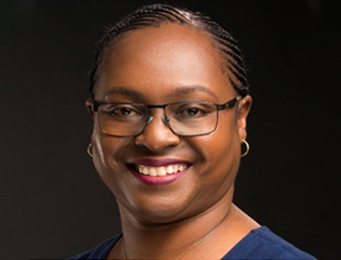| |
|
|

Interviews ::
 |
Amy Wu, an award-winning writer for the women’s Ag and Agtech movement |
 |
Ms. Irene Karani, Children’s Investment Fund Foundations’ Africa Climate Director |
 |
Natalia Schäfer (Schaefer), Leading and Globally Renowned Artist |
|
Read All Interviews |
News / Updates/ Analysis ::
COP 27- some hopes midst of chaos
Climate Change is Happening Now- Time to Take Action!
|


|
|
|

|
‘Equity has to be at the center of the Africa climate debate, policy and actions because women, youth and children are the most vulnerable and affected genders by climate change in Africa’.
Ms. Irene Karani, Children’s Investment Funds Foundations’ Africa, Climate Director
|
What are global climate injustices that have significantly impacted the Africa region? Who is responsible?
Global climate injustices that have impacted the Africa Region are many. However, I would like to highlight following:
The global finance and climate architecture ignoring the needs of a continent that has done the least to contribute to global warming with less than 4% contribution, yet it is the most vulnerable and impacted by climate shocks, with extremely limited resources to adapt to the climate crisis.
The lack of fulfilment of climate finance targets by the global north that can assist African countries’ transition into a green pathway and adapt to climate change
Why do you think gender should be at the center of Africa Climate debate, policy, and actions?
Equity has to be at the center of the Africa climate debate, policy and actions because women, youth and children are the most vulnerable and affected genders by climate change in Africa. They also have limited resilience, yet they make up the majority of the population on the continent.
What are your key call for action to donors and governments, including in Africa?
Donors and governments need to double down their efforts in seeking solutions to the climate emergency affecting Africa, because the world cannot afford to leave the children of Africa behind, as this will affect the other regions that need Africa for the survival of their children.
What are Children’s Investment Fund Foundation’s key global and Africa priorities with regard to climate justice?
Our priorities include raising the voices of women, youth, indigenous and other vulnerable groups advocate for climate justice at national, regional and global and forums. This is through campaigning and movements, to elevate Africa’s economic development priorities, which include transitioning to green development pathways in the energy and food systems sectors for job creation and sustainable livelihoods.
Therefore, global efforts on assisting Africa address the climate crisis on the continent need to be intensified because the entire globe will be affected through disruption of value chains that depend on Africa.
Meaningfully engaging young people in climate policy formation to produce better and more progressive policy outcomes for all generations and positioning Africa as an investment opportunity for private sector.
Where do you see Rising Climate Hope- share us a brief example?
The pastoralist people on the African continent have been at the forefront of adapting to climate for hundreds of years and they serve as a good example of how people connect with nature in balancing the ecological cycle despite climate shocks. This cycle however can only remain intact if not interfered with. However, with the increasing frequency of drought especially in the Horn of Africa and with limited livelihood alternatives, social safety nets can assist vulnerable people survive and there are good examples of this in Kenya and Ethiopia.
Irene Karani holds over 28 years of experience in environment, natural resource, climate change, monitoring and evaluation in over 13 countries in Africa. Irene has been an educator, teaching natural resource management disciplines in Kenyan public and private universities, developing and implementing cutting edge interventions in climate, conservation, development and humanitarian sectors in non-governmental organisations, providing management consultancy services to African governments, bilateral, multilateral, civil society and private sector clients in Africa, Europe and the United States. She has also published research papers and articles related to climate change, the measurement of resilience, and contributed to discussions seeking African solutions to climate at national, regional, and international forums. Her current role as CIFF’s Africa Climate Director, includes building an impactful climate portfolio in Africa with a focus on East, West and Southern Africa, across industry decarbonization and renewable energy, just transition, climate finance, food and land use systems, nature-based solutions, climate and development nexus, climate diplomacy and thought leadership - amongst others. 10-6-22
|
|

